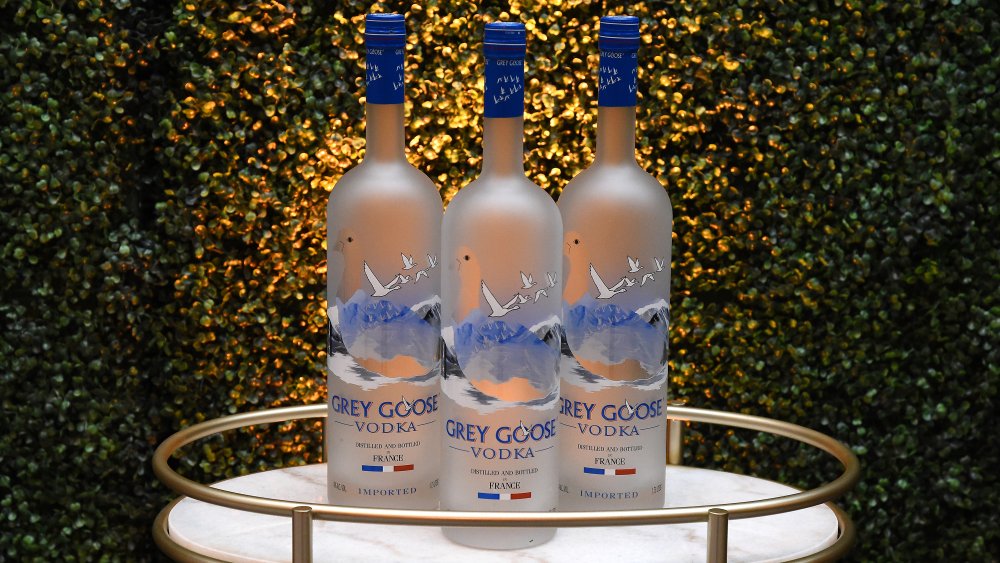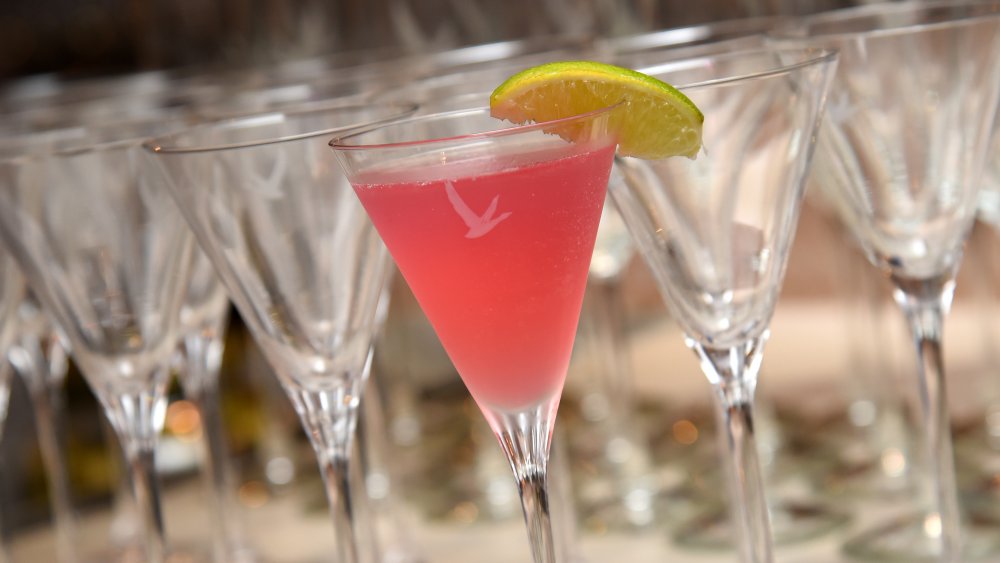The Real Difference Between Costco's Kirkland Vodka And Grey Goose Vodka
As the saying goes, you get what you pay for — otherwise it's stealing. Well, it doesn't go quite that way, but you get the gist. And for many consumers, that's what a price tag is: the gist of a product's quality stated as a number. But what if their mind's just playing tricks on them? Take wine, for instance. Plenty of people shell out big bucks for big-name wines and think they can taste an increase in quality. However, according to How Stuff Works, neuroscientists determined that when you alter the price of the wine without changing the liquid itself, the wine drinkers' brains adjust the taste based on expectations.
Simply telling someone that their alcohol cost $90 made it tastier than the same liquid with a $10 label. Does the brain do this weird thing in the opposite direction, with consumers assuming that an inexpensive alcohol which tastes good must secretly be identical to a more expensive beverage? That's a matter for those fancy brain-ologists to resolve. But if that is the case, perhaps it explains what's going on with Costco's Kirkland vodka, which is some people believe it's secretly made by Grey Goose.
The vodka brand might be going to your head
A 1.75-liter bottle of Kirkland French vodka will only set you back about 20 bucks, writes Business Insider. Upgrading to Grey Goose would cost triple the price. But a persistent rumor holds that the price is the only upgrade. The claim isn't that Grey Goose slaps its name on "cheap" vodka but rather that Costco's vodka is a top-tier liquor made by Grey Goose that won't cost your bottom dollar. That distinction is significant for multiple reasons.
Grey Goose has unequivocally denied making Kirkland brand vodka, but they do have something in common. As Vice describes, both liquors are made with water "from the Gensac Springs in France's Cognac region." However, in blind taste tests, Kirkland has actually outperformed Grey Goose. Does the assumption that they're the same change what people taste in non-blind comparisons? If the way they taste wine is any indication, then there's reason to think so.
In theory, any taste difference should be minimal. Author Fred Minnick told Business Insider, "When you buy vodka, you are basically paying for someone's fat salary and the marketing associated with it." That's because it wasn't intended to be tasty or really have much of a taste at all.

